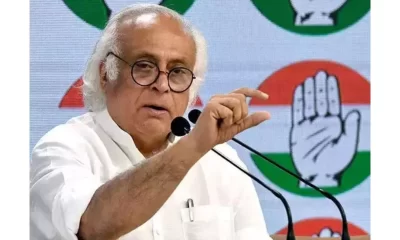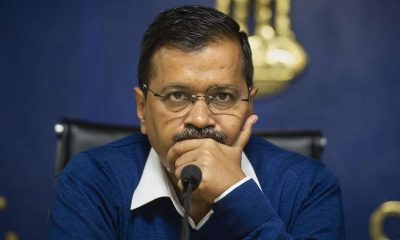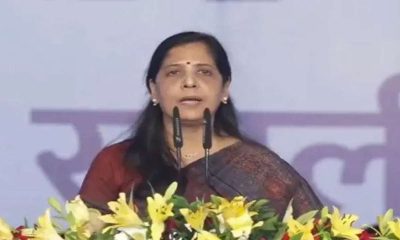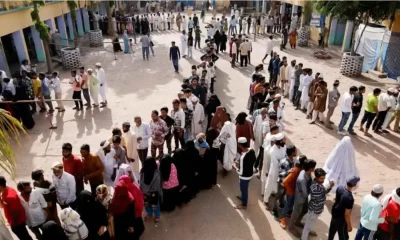India News
Air pollution can impair brain development in babies, warns UNICEF report
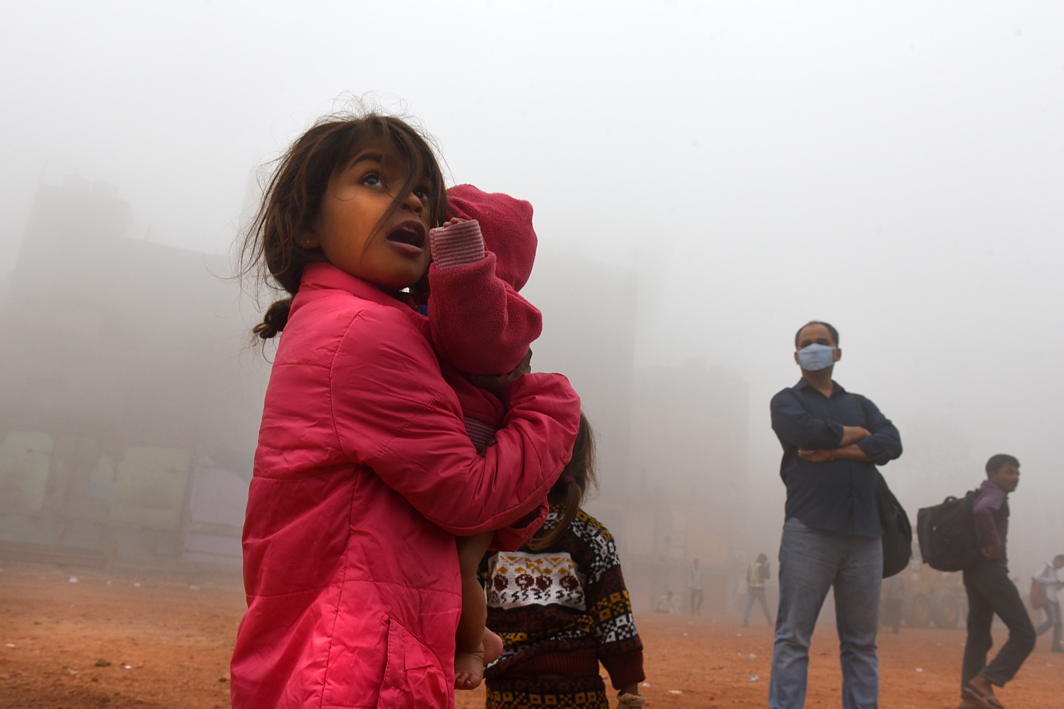
[vc_row][vc_column][vc_column_text]A UNICEF report released on Wednesday, Dec 6 – a day after the first International Smog Day – says babies in South Asia face the danger of poor brain development due to air pollution.
The report comes at a time when north India, particularly Delhi and adjoining areas, battle high pollution levels with air quality swaying from ‘very poor’ to ‘emergency’ levels, restricting physical activity and forcing closure of schools.
The UN agency, in its report “Danger in the Air: How air pollution can affect brain development in young children”, said Asia accounts for more than 16 million of the world’s 17 million infants aged under one year living in areas with severe pollution — at least six times more than safe levels.
India topped the list of countries with babies at risk, followed by China.
Satellite imagery used to assess pollution levels around the world found that South Asian countries accounted for 12.2 million of the total number of affected children but that there is also a growing problem in African cities.
The report notes that breathing in particulate air pollution can damage brain tissue and undermine cognitive development – with lifelong implications and setbacks.
Air pollution has already been linked to asthma, bronchitis, and other long-term respiratory diseases.
“But a growing body of scientific research points to a potential new risk that air pollution poses to children’s lives and futures: its impact on their developing brains,” UNICEF said.
The report highlighted links found between pollution and brain functions “including verbal and nonverbal IQ and memory, reduced test scores, grade point averages among school children, as well as other neurological behavioural problems.”
Air pollutants inhaled during pregnancy can affect the developing brain of a foetus, with potential lifelong effects, says the report.
One study reports a four-point drop in IQ by the age of 5 among a sample of children exposed in utero to toxic air pollution, it said.
The report said further research was needed to study the full impact of air pollution on children’s developing brains. “As yet, we know the minimum – but not the maximum – extent of the harm. The variety of types of pollutants that are in the air across different environments make it difficult to determine the full impact of air pollution. But this growing body of research does provide an indication of the scale of harm,” said the UNICEF.
“As more and more of the world urbanises, and without adequate protection and pollution reduction measures, more children will be at risk in the years to come.”
The author of the “Danger In The Air” report, Nicholas Rees, told AFP that toxic pollution is “impacting children’s learning, their memories, linguistic and motor skills.”
UNICEF urged more efforts to cut pollution, and also to reduce children’s exposure to the poisonous smog which has frequently reached hazardous levels in Indian cities in recent weeks.
It called for a greater use of masks, air filtration systems and for children to avoid travelling when pollution levels are at their highest.
Rees said masks help “but very importantly they have to have good filters and they also have to fit children’s faces well. A mask that does not fit the face well won’t work.”[/vc_column_text][/vc_column][/vc_row][vc_row css=”.vc_custom_1512568093364{border-bottom-width: 20px !important;padding-top: 20px !important;padding-bottom: 20px !important;background-color: #a2b1bf !important;}”][vc_column][vc_column_text]Excerpt from the UNICEF press release:
The paper shows that air pollution, like inadequate nutrition and stimulation, and exposure to violence during the critical first 1,000 days of life, can impact children’s early childhood development by affecting their growing brains. Here are the main points of the report:
- Ultrafine pollution particles are so small that they can enter the blood stream, travel to the brain, and damage the blood-brain barrier, which can cause neuro-inflammation.
- Some pollution particles, such as ultrafine magnetite, can enter the body through the olfactory nerve and the gut, and, due to their magnetic charge, create oxidative stress – which is known to cause neurodegenerative diseases.
- Other types of pollution particles, such as polycyclic aromatic hydrocarbons, can damage areas in the brain that are critical in helping neurons communicate, the foundation for children’s learning and development.
- A young child’s brain is especially vulnerable because it can be damaged by a smaller dosage of toxic chemicals, compared to an adult’s brain. Children are also highly vulnerable to air pollution because they breathe more rapidly and also because their physical defences and immunities are not fully developed.
The paper outlines urgent steps to reduce the impact of air pollution on babies’ growing brains, including immediate steps parents can take to reduce children’s exposure in the home to harmful fumes produced by tobacco products, cook stoves and heating fires:
- Reduce air pollution by investing in cleaner, renewable sources of energy to replace fossil fuel combustion; provide affordable access to public transport; increase green spaces in urban areas; and provide better waste management options to prevent open burning of harmful chemicals.
- Reduce children’s exposure to pollutants by making it feasible for children to travel during times of the day when air pollution is lower; provide appropriately fitting air filtration masks in extreme cases; and create smart urban planning so that major sources of pollution are not located near schools, clinics or hospitals.
- Improve children’s overall health to improve their resilience. This includes the prevention and treatment of pneumonia, as well as the promotion of exclusive breastfeeding and good nutrition.
- Improve knowledge and monitoring of air pollution. Reducing children’s exposure to pollutants and the sources of air pollution begins with understanding the quality of air they are breathing in the first place.
[/vc_column_text][/vc_column][/vc_row]
2024 Lok Sabha Elections
Lok Sabha Elections: Voter turnout 62.02% in Tamil Nadu till 5pm
The voter turnout in Tamil Nadu stands at 62.02%, while Uttar Pradesh records a turnout of 57.5%. Meanwhile, in West Bengal, voter participation surges to 77.5% as of 5 pm.
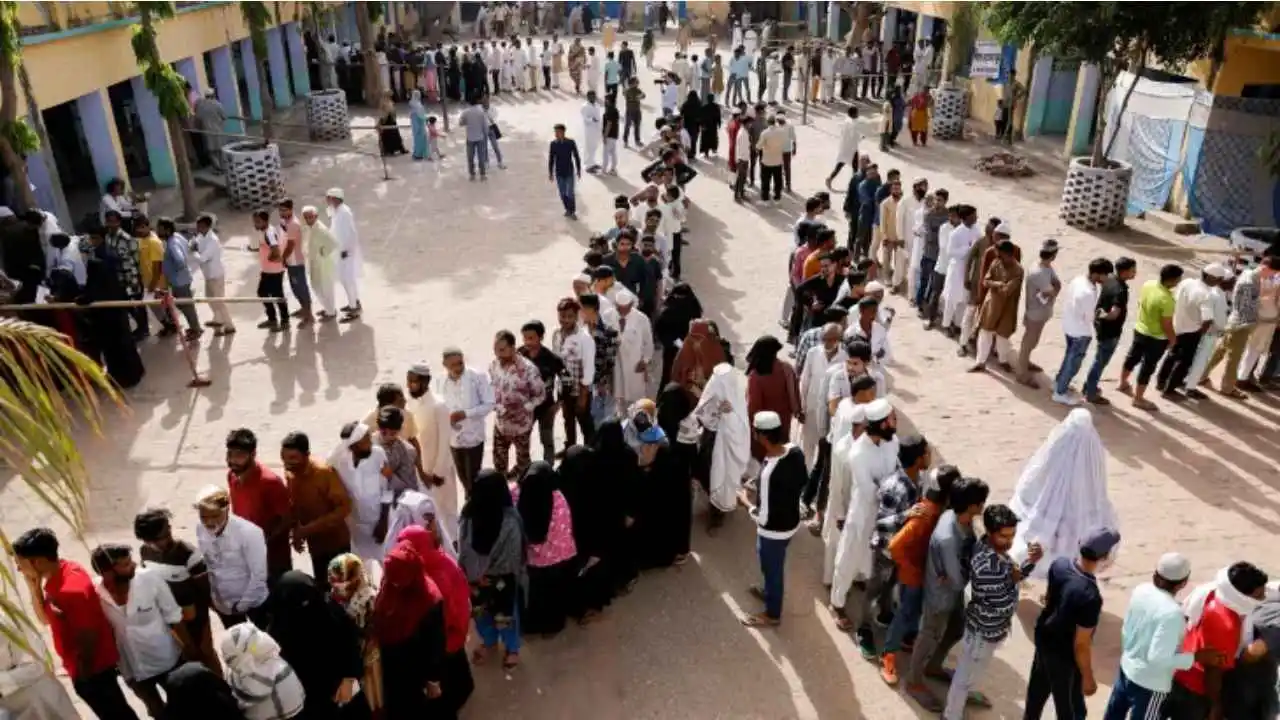
The Lok Sabha elections 2024 began today, marking the onset of the world’s largest electoral event. Voting ended in all 39 Lok Sabha constituencies in Tamil Nadu with a total voter turnout of 62.02%. State BJP chief and Coimbatore Lok Sabha constituency candidate K Annamalai said, they were getting complaints from a large number of voters that their names were missing from the voters’ list.
This incident happened in many places. Annamalai said they are demanding re-poll in places where the names of a large number of voters were missing.He said they had a doubt that there was some political interference because the names of a large number of BJP caders were missing from the voters list.
The voters in South Chennai showed lukewarm interest to participate in the election process and had a total voter turnout of 57.04% till 5pm. Although the overall percentage is poor, some areas like Thiruvanmiyur witnessed brisk polling from 7am onwards. Elderly, middle aged and young voters turned up and it was a family outing for many as they cast their vote.
Corporation volunteers assisted senior citizens with wheelchairs and guided them to their respective polling booths. The hot weather also had an impact on the polling as it reduced the voter turnout as many booths in the corporation school in MGR Nagar were seen deserted around noon. Senior citizens showed courage as they reached the polling booths in private vehicles to exercise their franchise.
Most of the polling booths had shamianas for voters so that they could wait in a queue. Some people even found refuge in the nearby buildings to save themselves from the scorching heat. The polling officials gave instructions to the voters to keep their phones switched off while they exercised their franchise. The security personnel at the polling booth also regulated traffic outside the polling booth in MGR Nagar.
2024 Lok Sabha Elections
Deserted by key supporters, the Kamal Nath story looks set to wind to an end in Chhindwara
Nath’s closest allies in his near 50-year reign—Deepak Saxena and Kamlesh Shah—have deserted him. His local team of corporators has also decided to jump ship leaving a gaping hole in Nath’s campaign trail.
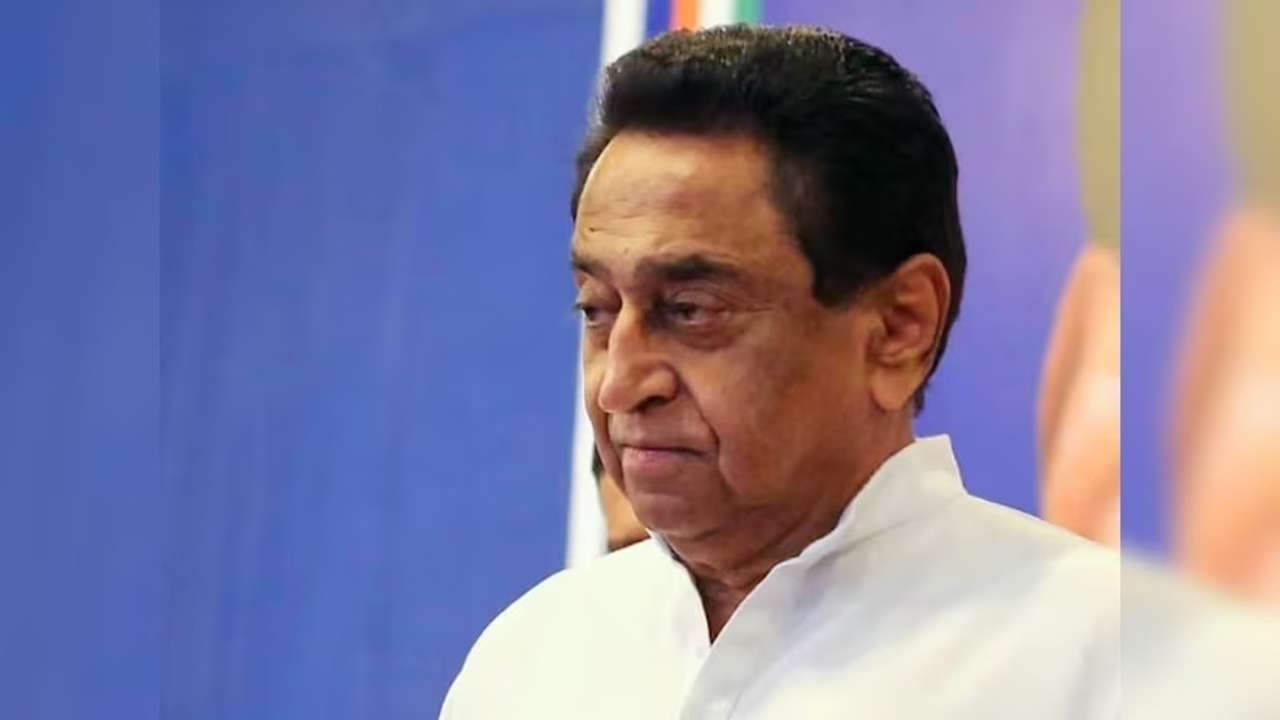
By Neeraj Mishra
The Congress has lost Chhindwara only once since Independence when the wily Sunderlal Patwa was sent there by Atal Bihari Vajpayee to test Kamal Nath’s hold on the constituency. Patwa won the 1997 by-election by a slim margin in the backdrop of Nath having forced his wife to first contest and later vacate the seat for him. Nath, however, returned to his winning ways the very next year and has won the seat nine times.
It seems possible that Chhindwara, the lone surviving Congress seat, will be lost again this time and may be forever. A day ahead of polling, the town was drowned in saffron. Not so much the effect of vigorous campaigning by Vivek Sahu of the BJP but the Ram Navami festival which brought out saffron flags on every rooftop. The effect is likely to last since the polling is today. At 77, Nath is unlikely to contest another election here and his son Nakul seems like a pale shadow of his father unable to even make a forceful speech. The days of running Chhindwara from Shikarpur kothi are gone.
Nath’s closest allies in his near 50-year reign—Deepak Saxena and Kamlesh Shah—have deserted him. His local team of corporators has also decided to jump ship leaving a gaping hole in Nath’s campaign trail. Nakul had won by a margin of 37,000 votes in 2019 and the biggest lead had come from Kamlesh’s Amarwada Assembly segment. With Saxena in control of Chhindwara and forced to show his strength in his new party, it is highly likely that Nakul will not be depending on these segments. Instead, the Congress campaign was focused on Pandhurna, Parasia and Chaurai.
Amit Shah was in the region a couple of days ago and warned all BJP workers—old and new—against lethargy. His message was clear, the BJP wants all 29 seats this time. Cabinet Minister Kailash Vijayvargiya is camped here and using all his political acumen for the desired results. One such tactic was to raid the Shikarpur Kothi of Kamal Nath for his assistant Miglani who handles almost everything for him. With Miglani temporarily neutralised, BJP is best placed to repeat its win in Chhindwara in 1997.
2024 Lok Sabha Elections
Lok Sabha Elections 2024: Nearly 40% voter turnout till 1pm
Chennai recorded an average voter turnout of 34% as of 1 pm on Friday. According data released by the Election Commission of India, Chennai (North) recorded 35%, Chennai (Central) recorded 32.3% and Chennai (South) recorded 34%.
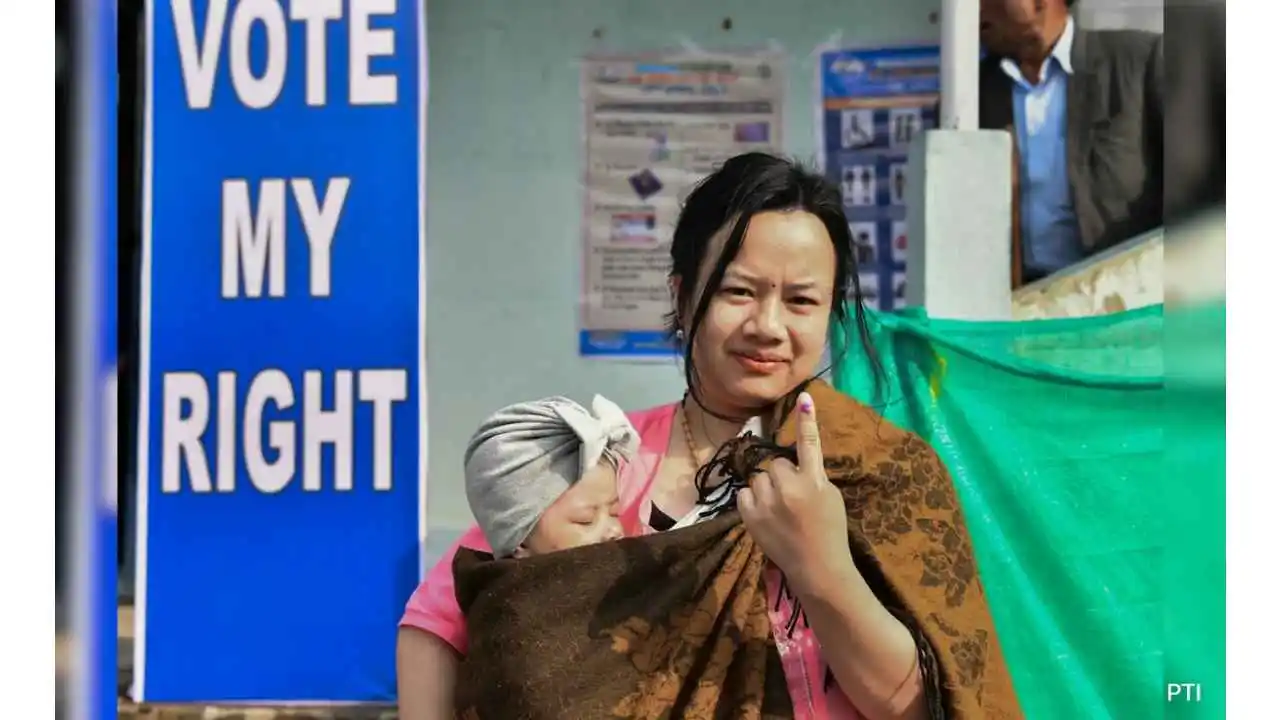
The first phase of voting for the 18th Lok Sabha elections started taking place in 21 states and Union territories on Friday. Nearly 40% voter turnout was recorded till 1pm across the states. Seats in Assam, Arunachal Pradesh, Chhattisgarh, Bihar, Maharashtra, Madhya Pradesh, Manipur, Mizoram, Meghalaya, Rajasthan, Nagaland, Tamil Nadu, Sikkim, Uttar Pradesh, Tripura, West Bengal, Uttarakhand, Jammu and Kashmir, Andaman and Nicobar Islands, Lakshadweep and Puducherry go to elections on Friday.
There has been a substantial increase in the voter turnout charts across the Northeast states, with Tripura leading at 53.04% until 1 pm, as per the data released by the Election Commission of India. Other northeast states like Manipur (46.92%) and Meghalaya (48.91%) are also witnessing high voter turnout. After Tripura, West Bengal is experiencing a high voter turnout of 50.96%.
Chennai recorded an average voter turnout of 34% as of 1 pm on Friday. According data released by the Election Commission of India, Chennai (North) recorded 35%, Chennai (Central) recorded 32.3% and Chennai (South) recorded 34%.
Over 33% voter turnout was recorded in the first 6 hours of voting on Friday in 12 parliamentary constituencies of Rajasthan. According to the Election Commission, voting started at 7 am amid tight security arrangements and 33.73 % voting took place till 1 pm. The highest voter turnout of 40.72 % was recorded in the Ganganagar Lok Sabha seat while Karauli-Dholpur saw the lowest turnout of 28.32 %. Jaipur recorded a poll percentage of 39.35 %.
Over 37 % voter turnout was recorded till 1 pm in the Lok Sabha election being held for five parliamentary constituencies in Uttarakhand on Friday. Elections began at 7 am and the five constituencies recorded an overall poll percentage of 37.33 % up to 1 pm. The Nainital-Udham Singh Nagar seat recorded the highest turnout of 40.46 %, followed by Haridwar with 39.41%, Pauri Garhwal with 36.60 %, Tehri Garhwal with 35.29 % and Almora with 32.29 %.
-
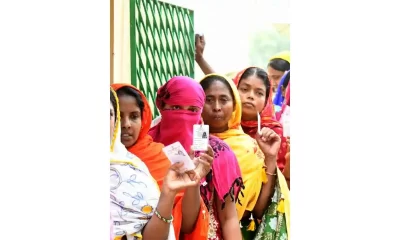
 2024 Lok Sabha Elections17 hours ago
2024 Lok Sabha Elections17 hours agoPrime Minister Narendra Modi urges citizens to vote in record numbers as voting for first phase of Lok Sabha elections begins on 102 seats across India
-

 Entertainment12 hours ago
Entertainment12 hours agoDo Aur Do Pyaar social media review: Social media users say Vidya Balan, Pratik Gandhi deliver standout performances in this adorable film
-
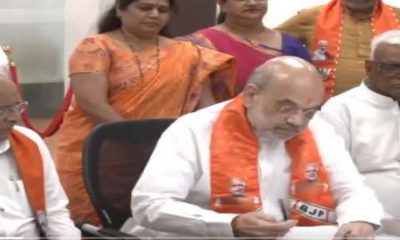
 2024 Lok Sabha Elections13 hours ago
2024 Lok Sabha Elections13 hours agoLok Sabha elections 2024: Amit Shah files nomination from Gandhinagar
-

 2024 Lok Sabha Elections16 hours ago
2024 Lok Sabha Elections16 hours agoKamal Haasan, Rajinikanth, Vijay Sethupathi, Dhanush vote in Chennai
-

 Entertainment14 hours ago
Entertainment14 hours agoYami Gautam starrer Article 370 releases on Netflix today
-
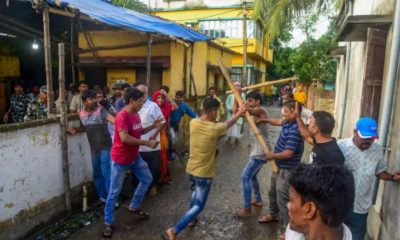
 2024 Lok Sabha Elections16 hours ago
2024 Lok Sabha Elections16 hours agoLok Sabha elections 2024: TMC, BJP workers clash in West Bengal’s Cooh Behar ahead of voting
-
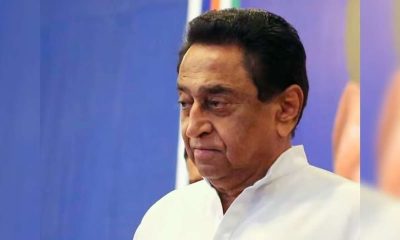
 2024 Lok Sabha Elections9 hours ago
2024 Lok Sabha Elections9 hours agoDeserted by key supporters, the Kamal Nath story looks set to wind to an end in Chhindwara
-

 2024 Lok Sabha Elections16 hours ago
2024 Lok Sabha Elections16 hours agoLok Sabha elections 2024: Google Doodle marks the start of polls with index finger voting symbol



